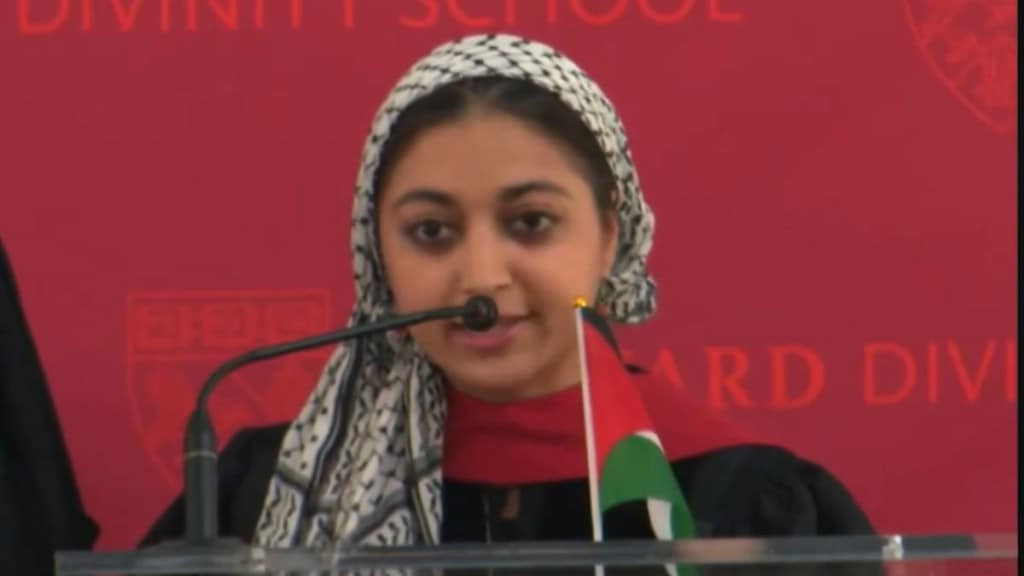At the Harvard graduation, a student dedicated her entire speech towards her opinion on the ongoing humanitarian crisis in Gaza. Standing by her peers, she condemned Harvard’s previous actions against students of withholding their diploma for standing by the victims of violence while naming her peers like Mahmoud Khalil who was accused of assaulting a jew.
“Palestine is waiting for us to arrive. And you must be courageous enough to rise to the call because Palestine will keep showing up in our living rooms until we are ready to meet its gaze,” she urged her peers bringing the onus of complacency upon her. Shared by Eyal Yakoby, who took it upon himself to combat “anti-Americanism” marked this speech as another incident of “systematic radicalisation” of Harvard.
BREAKING: At today’s Harvard graduation, the speaker spent the entire speech attacking Israel and defending a student who assaulted a Jew.
This isn’t a one-off. The radicalization at Harvard is systematic, not accidental.pic.twitter.com/DOoxcwflXL
— Eyal Yakoby (@EYakoby) May 30, 2025
This comes just hours after MIT’s class president, Megha Vemuri comments against Israel inflicted violence and how “MIT wants a free Palestine” and calls for a permanent “ceasefire”. The uncanny resemblance between the speeches of the students of Harvard and MIT calling the events of Gaza, a “genocide” has the netizens divided.
“Yet no matter how charged with punishments the scroll, again and again we witness to the enormous hearts, unwavering courage and profound wisdom of students like Ramesa Osterk, Mahmoud Khalil, Mohsin Mehdiwi and countless others who are in this very audience with us today, such as Elam Tateek Tamalco.” remarked the Harvard student.
While majority comments turn towards support of Trump’s actions against Harvard, pro-Israeli pages condemned how Harvard students, “used their platform not to inspire, but to slander Israel and excuse anti-Jewish violence.” Reacting to Vemuri’s speech another user shared, “MIT’s supposed to churn out sharp minds, not brainwashed drones who can’t see that Hamas is the only genocidal force in Gaza”.
The speeches at Harvard and MIT reflect the allegedly growing polarisation on college campuses over the Israel-Gaza conflict, highlighting how students are using commencement platforms to express political and humanitarian concerns. While some hail these voices as courageous and socially conscious, others view them as misinformed or divisive. The debate underscores the complex intersection of free speech, academic responsibility, and global politics, leaving institutions like Harvard and MIT at the center of a broader national conversation.

